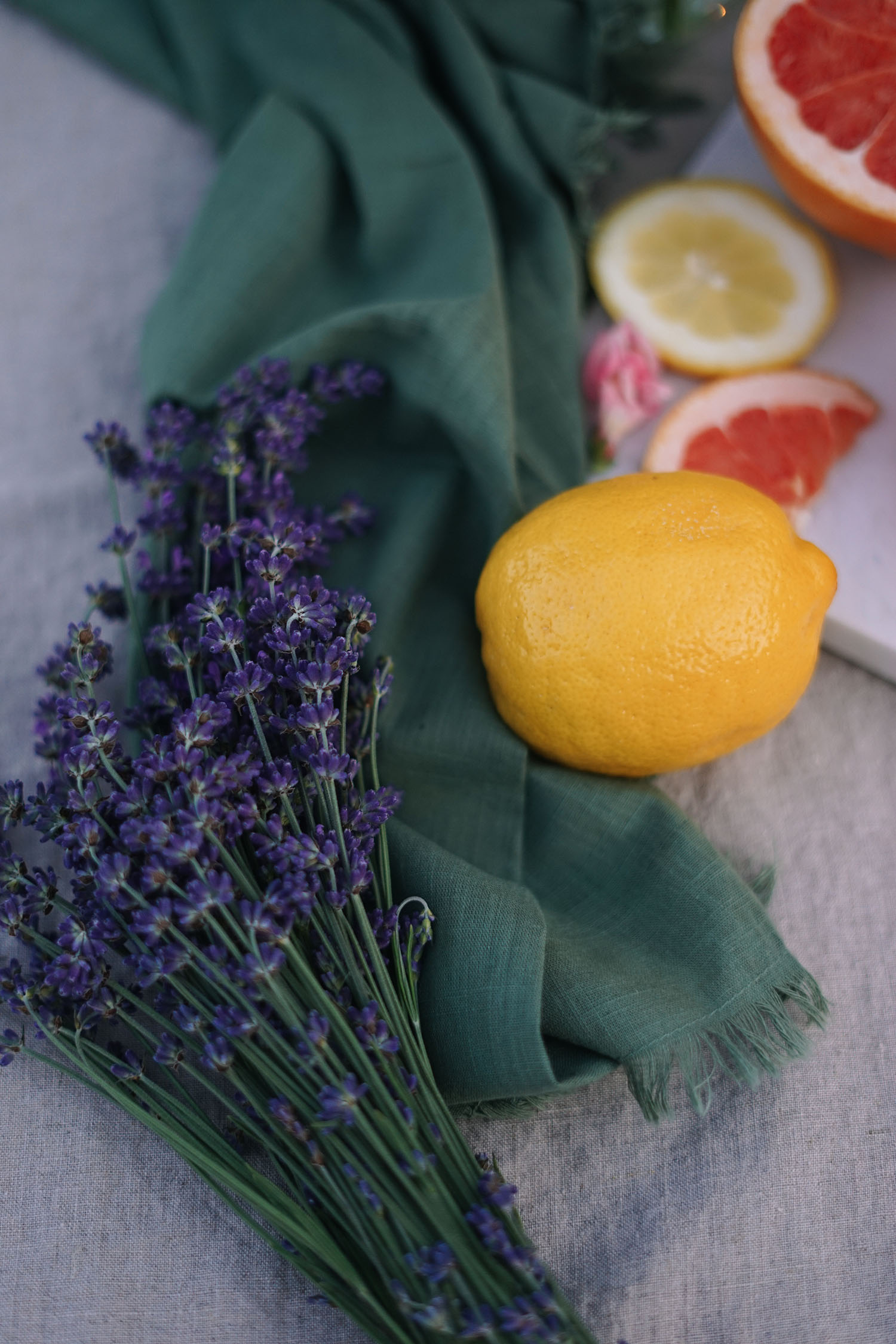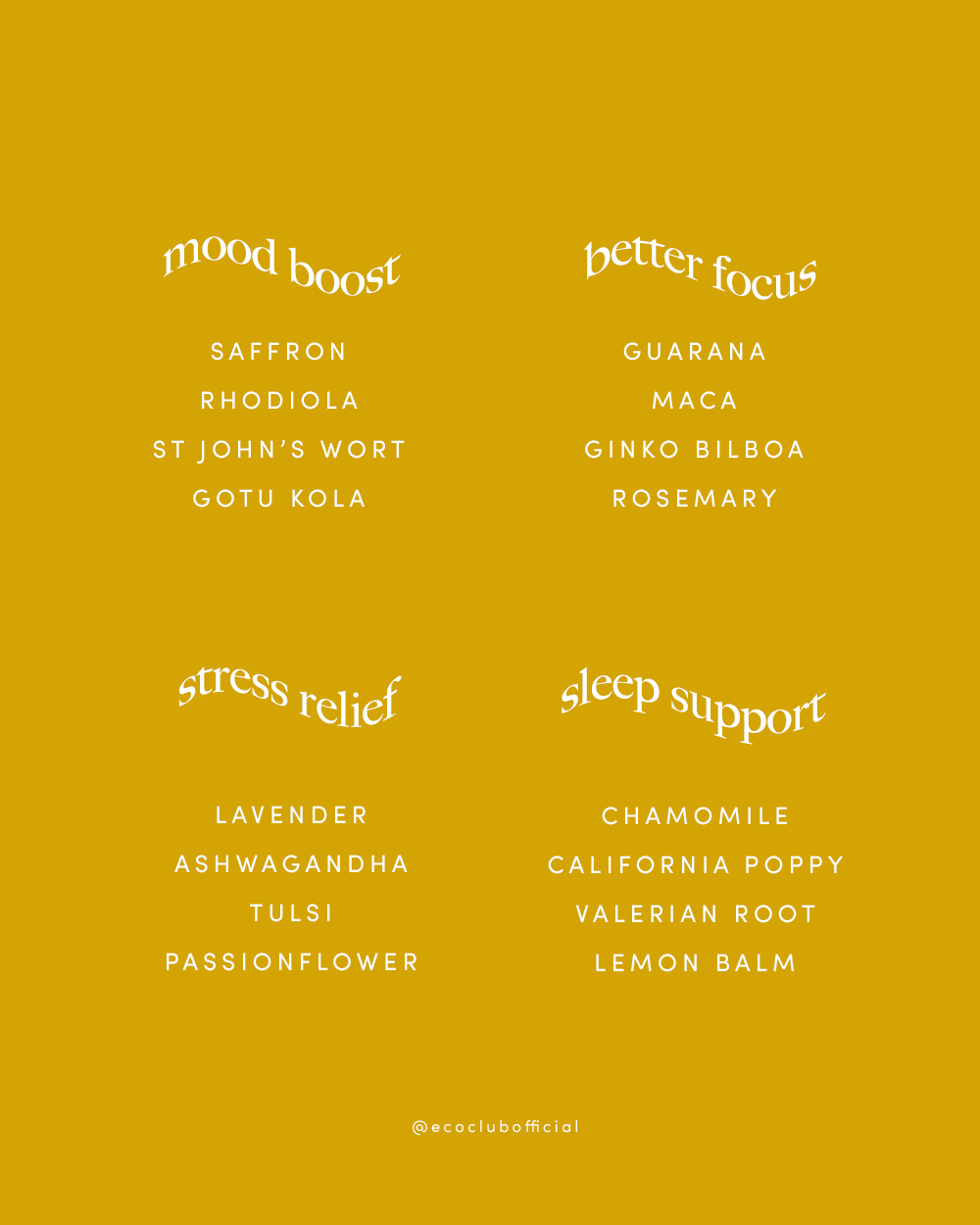It’s time to spill the tea sis—literally. If you’re anything like me, Tiktok has opened a whole new realm of self-care and holistic practices you would never have thought of in a million years… including making your own tea from scratch with a DIY tea blend. I know Teavana stores (RIP) originally cornered that market so, for someone who’s used to buying the idiot-proof boxes of Sleepy Time tea from my local grocery store, the idea of mixing my own blends never really crossed my mind.
But no more! Here’s a list of some basic herbs to help you get your own par-tea started today. (I’ll see myself out.) Here you’ll find herbs to create a DIY tea blend for everything from increasing focus to catching more Zzzs and more. Happy mixing!

best teas for a mood boost
If you’ve been struggling to maintain your mood at work, herbs like saffron have been shown to raise dopamine levels and combat depression, as well as lessening PMS symptoms.
Rhodiola, also known as golden root, is believed to alleviate some symptoms of depression by balancing the brain’s neurotransmitters.
St John’s wort has been tested numerous times and shown promising results in lessening the symptoms of depression and mood disorders. HOWEVER, it has several documented interactions to certain medications, so definitely be mindful before incorporating it into your diet!
Gotu Kola has been used for centuries in ayurvedic medicine to relieve multiple conditions. In this instance, you can use the herb to help alleviate anxiety and improve mental clarity.
best teas for focus
It’s a tale as old as time—you make yourself a coffee, pop open your laptop, and settle down to work… only to realize you’d like to be doing anything but.
Although I’ll never admit to just how heavily my college-aged-self depended on it, guarana is a key ingredient in most energy drinks for a reason. The caffeine not only makes your brain go choo-choo like Tomas the Tank Engine, it also helps you maintain focus. Double whammy all around.
Maca is a popular enough supplement that even Trader Joe’s stocked it for a hot minute. Research shows that the maca root may improve learning, memory performance, and endurance (mental AND physical).
Ginko Bilboa is a stalwart proponent of Eastern medicine. Its touted benefits include increased brain functions resulting in better memory, focus, and attention span.
Probably the most unassuming herb on this list, rosemary has surprising benefits beyond making a pizza slap. Studies have shown that with regular ingestion, it can improve memory and sleep quality, and possibly combat burnout.
best teas for stress relief
I think we can all agree—whether you have your own business, or just clock in to your 9-5, everyone deals with stress in their day-to-day life.
There’s a reason lavender is such a dominating proponent of stress-relieving products. Although no concrete reason is given for its effect, it seems that the act of smelling the herb helps to bypass other signals (i.e. anxiety, stress) in the brain.
Ashwagandha is a part of a sub classification of herbs known as adaptogens; basically, they help your body adapt more efficiently to dealing with stress. It’s said to help normalize cortisol levels (the stress hormone), and in turn help ease related symptoms.
Tulsi, also known as Holy Basil, is another adaptogenic herb. Chock full of antioxidants, Tulsi can be utilized to address a number of health concerns like boosting immunity, which tends to suffer when under prolonged bouts of stress.
Passionflower is a common additive in stress-targeted teas. Passionflower is believed to relieve anxiety and stress, as well as improve sleep by boosting your level of gamma-aminobutyric acid (GABA) which calms brain activity.
best teas for sleep
NOTHING makes me saltier than settling in for the night… only to realize my brain is running faster than I did in high school P.E. Cue chamomile—the reigning go-to for those of us afflicted with insomnia and racing thoughts. Its properties are widely believed to help reduce anxiety and induce sleep so fluff your pillow, and say hello to the Sandman.
Next up is California poppy—just knowing poppies were used to make opiates should be enough of a testament to their abilities to put you out like a light. Although the California poppy is a different variety from the potent Opium poppy, it has a shared effect of improving anxiety and inducing sleep.
Valerian root has a long history as a sedative in herbal medicine. Like Passionflower it has been proven to increase GABA levels in the brain. Time to PTFO!
A cousin to mint, Lemon balm has known properties for reducing stress and anxiety, and as a result, is also known for helping ease the symptoms of sleeping disorders.

Have you ever made your own DIY tea blend? Let us know what herbs you’re most excited to start mixing in your own kitchen!
your two cents